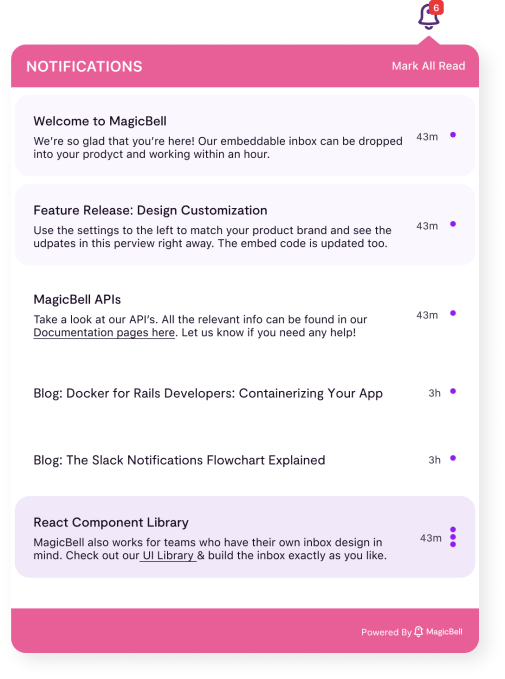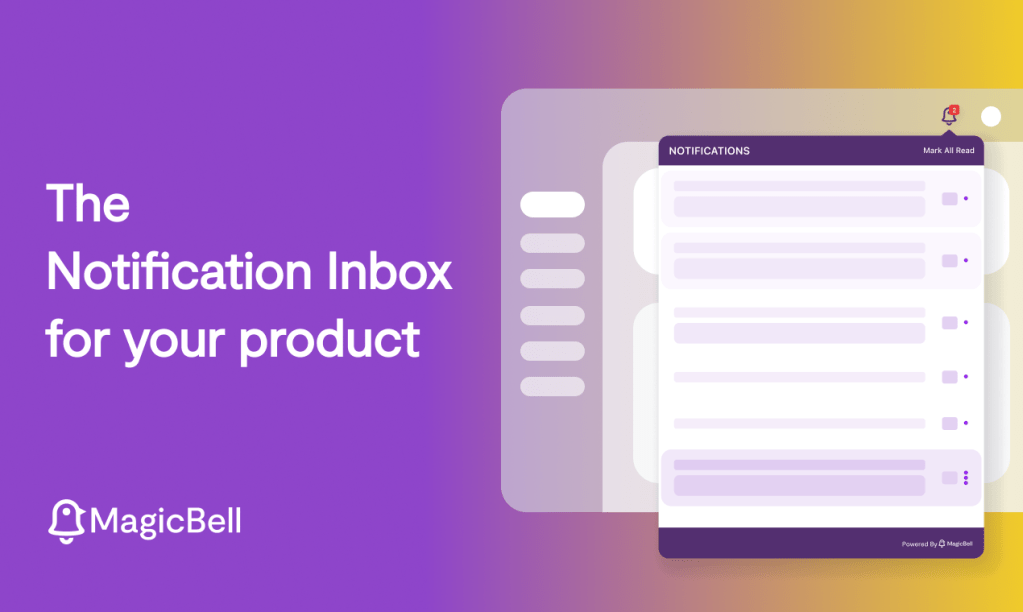One of the key ingredients in effective product development is receiving timely and relevant notifications about customer use, engagement, potential issues and more. Engineers, developers and product managers rely on that flow of information between themselves and their users, but it’s typically delivered either via legacy email tools or through notification systems built into product management dashboards that devs have to hand-code themselves. MagicBell, a startup that just went through Y Combinator’s most recent Winter cohort, has raised a $1.9 million seed round to deliver a rich notification platform for product teams that’s easy to integrate and use.
The round was led by Cherry Ventures, and includes participation by a number of angel investors including, Algolia co-founder Nicolas Dessaigne, Twitter Director of Product Management Marie Outtier and Wunderlist and Pitch co-founder Christian Reber. This list itself is a great endorsement of the need for what MagicBell’s building, since it’s a storied collection of veteran experts who have ample experience actually building some of the world’s most engaging software products.
“Sophia [Bendz], partner at Cherry Ventures], of course, worked at Spotify,” explained MagicBell CEO and co-founder Hana Mohan in an interview. “She has built a consumer product, and she has invested in a lot of startups […] we followed YC’s advice in this batch, which was to definitely leave some room in the round for strategic angels.”

That deep product experience on the cap table should serve MagicBell well as it seeks to grow the team, which currently consists of Mohan and co-founder Josue Montano. She and Montano previously worked on customer support ticketing system startup SupportBee, but found they were spending a lot of their time and effort on just building a notifications system for the platform. The greater opportunity, they realized, was in making that process plug-and-play, and scalable, since it’s something that can be intensely cost- and effort-intensive in setting up a new product, even though it’s also not anyone’s primary focus when building their software.
Basically everyone today is familiar and comfortable with a robust notification system — we use them constantly on our Android and iOS devices. But those notification systems are challenging to make successful, despite essentially being a commodity feature at this point. MagicBell offers a notification inbox that’s embeddable into existing software via React, JavaScript and REST (with additional frameworks in the pipeline), which provides real-time notification delivery, syncing of delivery and read status, individual user preference settings and delivery across web, email and mobile clients.
Long term, the plan is to build MagicBell into a full-featured notification platform that offers a highly-customizable means of keeping your product team and customers informed and in sync. Accordingly, the startup’s first priority with this initial funding is to hire engineers to help it build, says Mohan, and it’s also being driven by the product roadmaps of some of its initial customers — which coincidentally, includes a number of its investors.
“One of the cool things for us was definitely that three or four of our customers ended up investing,” Mohan said, noting that Reber’s startup Pitch was actually a customer before he decided to invest. “The other great thing about [Pitch] is that they have a pretty extensive roadmap themselves of launching a mobile offering, both on iOS and Android. So they’re really pushing the product forward, which is great for us.”
Mohan is also one of the inaugural guests on our new podcast Found; subscribe now to get our episode with her when it becomes available on Friday. She goes into a lot more detail about YC, and the process of identifying the need for MagicBell in the market, plus plenty more, so be sure to tune in.
Our favorite companies from Y Combinator’s W21 Demo Day: Part 1































Comment